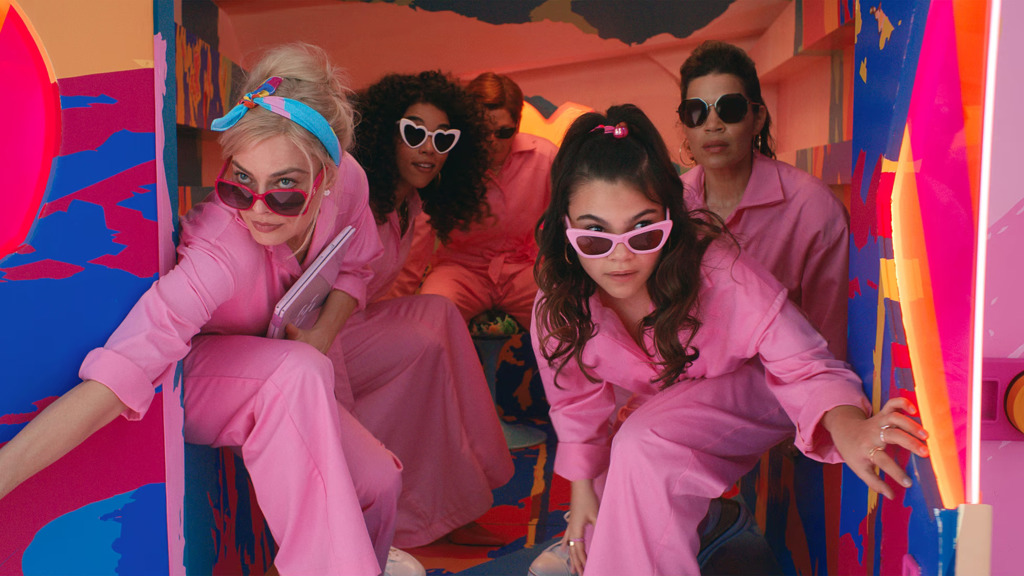It’s not just about a plastic doll.
Comedian Jo Koy has been scrutinized by Hollywood and the public after an abysmal opening monologue at the Golden Globes ceremony that took place on Jan. 7. Awkward jokes were littered throughout the entirety of the monologue, but one stood out as particularly alarming.
At one point in the monologue, Koy sets up a joke that compares Barbie (dir. Greta Gerwig) and Oppenheimer (dir. Christopher Nolan), the two blockbuster giants from last year. He begins by praising Oppenheimer’s basis on the life of J. Robert Oppenheimer and the 2005 biography American Prometheus, following up by saying Barbie is based on “a plastic doll with big boobies.”
As evident by the quiet, sparse laughter, the attempted joke hardly landed among the guests. Previous hosts of the Golden Globes like Ricky Gervais have frequently been known for their banter and incorporation of playful insults, yet there was nothing playful about how Koy’s Barbie joke was set up.
The basis of the joke was the comparison of two achievements, yet Koy chose to reduce it to the sexualization of the Barbie doll. Ironically, the joke conflicts with the core messages Barbie tries to convey in a very surface-level, easily digestible way.
The implications of this catastrophic monologue are made apparent in the film’s final act, when Gloria (America Ferrera) addresses the double standards put on women and calls for change. The success of Barbie and Greta Gerwig is tremendous for cinema, but these achievements made by women have become a source of offensive comedy material for men who call themselves comedians.
The film’s approach to gender is hardly complex or unapproachable; one could even call it Feminism 101. That being said, the very fact that jokes about cinematic achievements by women are still being reduced to sex appeal confirms that Feminism 101 is exactly what some people need.
Notwithstanding its very evident incorporation of gender politics and the identities that come with them, Koy’s joke excessively sexualizes Barbie. He sees Barbie as an object, which is exactly what the film seeks to subvert.
From a broader perspective, the film wants audiences to see her as anything but a doll by the end. Rather, it looks at how the idea of a doll that can come in hundreds of shapes and forms impacts womanhood and the collective cultural identities surrounding it.
Aside from the incorporation of Mattel in the film, Margot Robbie portrays Barbie in a dynamic way that reminds audiences that she’s not just an object. As we witness her learn about the human world and its complexities, we begin to see her as a more relatable being who undergoes the same relatable struggles humans often encounter.
In the film’s conclusion, Barbie questions if after this journey she even feels like a doll any longer, ultimately deciding to consider herself a human instead of a doll. This ending suggests the idea that Barbie being a doll was only a stereotype, and that the idea of her being a complex human is something she has the autonomy to decide.
The sentiment the film leaves audiences with has roots in womanhood, but its metaphysical reflections on finding identity inside oneself is a theme applicable to the very act of being alive and aware of our place in the world. Barbie was never just made to tell the story of a doll; it was made to remind us of the ideas surrounding the doll itself that have shaped what it means.
Koy’s joke reminded everyone watching that there is still learning to be done and not even a film that is accused of being “Feminism 101” is capable of doing that.
Words carry meaning and disguising them behind a joke does not detract from the negative weight they can have. Jo Koy’s Golden Globes disaster will likely be remembered bitterly and eventually replicated on a Saturday Night Live skit. What is important to learn from this is that Barbie was never just based on a doll. Treating it as such neglects the hard work done by Gerwig, Robbie, and others involved in the film.

